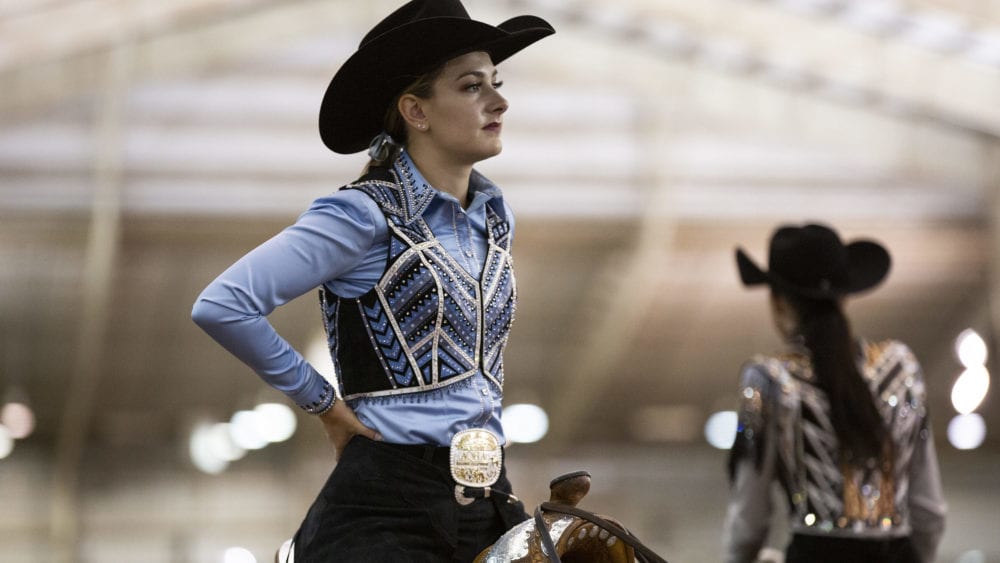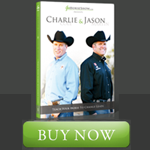Communication is a foundational element of successful horse and rider teams. The members of the team must work in harmony to achieve goals. And the only way to do this is through effective communication.
Horseback riding is a challenging sport because one team member does not speak the same language. It is up to the exhibitor and coach to accurately convey information to the horse. Foremost, an exhibitor needs to value communication with other knowledgeable industry professionals.
We talked to Allison Parker of Allison Parker Performance Horses and Charlie Bussieres of Charlie Bussieres Show Horses, about how an exhibitor can improve their communication skills with their horse, trainer, and within themselves.
Be Clear & Concise
Horse
Horses do not like to receive multiple mixed signals from their rider. Inconsistency only frustrates the animal further when learning. Your job is to communicate as clear and concise as possible to your equine teammate. Keep this in mind next time you hit a “bump” in the road. Problems usually arise when the line of communication becomes unclear.
Trainer
Trainers work hard to make sure horse and rider duos are prepared for the show pen. When you have concerns or questions, be clear and concise. Do not avoid challenging topics, prioritize an open line of communication. Honesty is always the best policy.
Bussiere’s comments on the importance of asking questions, “As a trainer, having a client ask me questions before, during, and after a lesson or practice tells me what is on their mind, what they are understanding, and what they are not understanding.”
Yourself
Just as it is essential to be clear with your horse and coach, it is crucial to also be honest with yourself. Dancing around meaningful conversations or realizations only creates more problems down the road.
Have Specific Goals in Mind
Horse
Horses can become confused and frustrated very quickly. That is why it is crucial to have a specific goal in mind when asking them to complete a maneuver. The more specific the rider is, the clearer of a message the horse receives.
Bussieres advises, “Having goals helps to exactly know what to work on and not get lost in unnecessary exercises that could cause a horse to become irritated.”
Trainer
The more specific of a goal you set, the more likely you are to achieve it. Take the time to talk to your coach about your personal goals. What do you hope to accomplish this month? This year? Maybe even five years from now? Collaborate with a knowledgeable professional who can help you achieve those aspirations.
Bussieres exclaims, “Goal setting also keeps clients and trainers very motivated and looking forward to the next horse show.”
Yourself
It is crucial to set specific goals for yourself as a rider and as a person. Set both long and short-term goals. Writing these down will also help you stick to it. Self-reflection helps an exhibitor communicate more effectively with their coach and horse.
Listen
Horse
Even though horses do not speak our language, they communicate to us in many other forms. It is essential to listen to their response to you as a rider. Body language plays a vital role in this exchange between horse and rider.
Parker adds, “Horses are herd animals, which makes them very sensitive to stimuli. They need a rider’s reputation to count on and build confidence and rhythm.
Trainer
Your trainers’ job is to coach you to become a better rider. Listen to their feedback and genuinely try to implement their critiques. Most trainers have only good intentions for their students. They want you to achieve your goals just as much as you do.
“If a rider can bring a soft, relaxed, balanced seat and rhythm to a lesson, a coach can concentrate on teaching more advanced techniques,” says Parker. “Also, be positive when you show up. It makes everything easier for everyone.”
Yourself
Equestrians must be incredibly self-aware when riding a horse. Listening to your body language and emotions will significantly benefit your other forms of communication. If you start to tense up, Parker recommends, “Try rolling your shoulders back and sitting down in your saddle. Another effective drill is counting strides. Try counting to 4 or 5; this can slow your rhythm and take your mind off your nerves.”








